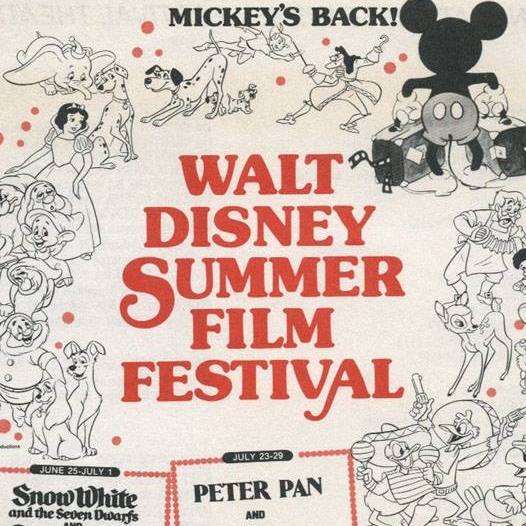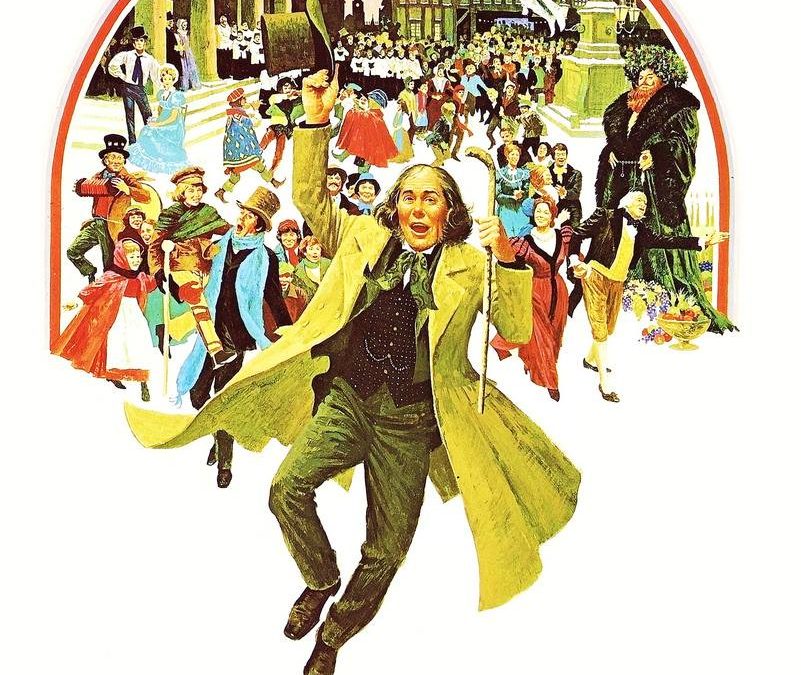A song a day keeps the coronavirus blues away:
50 years ago, on 11/5/70, the classic musical version of “Scrooge”, starring the wonderful Albert Finney as Ebenezer Scrooge, premiered. The songs of Leslie Briscusse are generally quite good, especially the classic “Thank You Very Much”, and the adaptation of Handel’s Messiah that is converted into the opening and closing title tracks. The gorgeous artwork in the titles are done by the great Ronald Searle, of St. Trinian’s fame, his artwork in glorious color.
Albert Finney, only 37 when he played Scrooge in heavy make-up, is a very enjoyable little scum as Scrooge, and he has fun with the more negative aspects of the character, but also brings nice pathos with the love story, which allows him to play the character when he’s young (since Finney was younger, he could play the younger Scrooge, something most of the actor’s didn’t get to do). The song “You” is rather powerful in relaying how Scrooge’s mistakes have left him with pain.
David Collings plays a very likeable Cratchet, Dame Edith Evans an elegant Ghost Of Christmas Past, the delightful Kenneth More is the Ghost Of Christmas Present, the great Lawrence Naismith is a spry Fezziwig (singing “December The 25th”) with the wonderful Kay Walsh as Mrs. Fezziwig, Roy Kinnear as one of the charity collectors, and the great Alec Guiness has fun as a fey Marley (“It astounds you, I can tell”).
The film is stolen by Anton Rodgers as Tom Jenkins, one of the people who owe Scrooge money, and in the “future” celebrates when Ebenezer has died, leaving all those who owe him money off the hook. He sings “Thank You Very Much”, mocking the graciousness of Scrooge to pass away, and not have to be paid, in a rather spectacular, fun number that is truly memorable, the irony being that Scrooge himself is unaware they’re celebrating his demise.
The Ghost Of Christmas Future sequence is particularly horror oriented, and beautifully mounted, the hooded ghost an ominous specter. Marley takes Scrooge down to a frozen hell, his working area, where Cratchit works, now his working quarters, with the wonderful irony of having Scrooge be the coldest man in hell (“You’ll be the only man in hell who’s chilly!”). This whole sequence was cut when it was given on NBC and syndication, for time, so it was a surprise when the film was uncut on video, for those scenes hadn’t been seen since its theatrical showings.
Finney’s conversion is a total delight, with a reprise of “Father Christmas, and a reprise of “Thank You Very Much” makes for a truly rousing finale. The last scene where Scrooge is walking up his block, all alone, and talks to the “Marley” on his door knocker is incredibly touching;
“Hello! I don’t know whether you can hear me, old Jacob Marley, and I don’t know whether or not I imagined the things I saw, but between the pair of us we, we finally made a Merry Christmas, didn’t we.
(whispering) I have to leave you now. Must go and get ready. I’m going to have Christmas dinner with my family.”,
with Handel’s Messiah adapted to “A Christmas Carol”, going to a glorious crescendo, for an unbelievably joyous ending.
“Scrooge” premiered in Los Angeles on 11/5/70, and opened at Radio City Music Hall on 11/19/70. It premiered on NBC on 11/23/74, cutting down the 113 minute film to 95 minutes, the hell sequence not making it to television.
Here’s the classic “Thank You Very Much” and the adaptation of Handel’s Messiah in the opening and closing titles. Both are unbelievably joyous and incredibly powerful in their emotions. Considering the joys of the film, as well as the very definite horror elements in this version, the film is beautifully balanced in bringing this story of redemption and making Scrooge a three dimensional character. I’d put it as the third best movie version, after the Alastair Sim and Sir Seymour Hicks versions, which is pretty strong praise considering.
“Thank you very much!”

